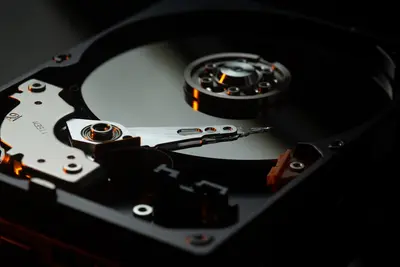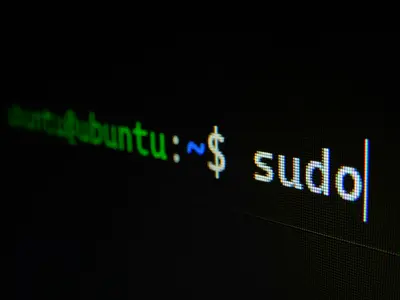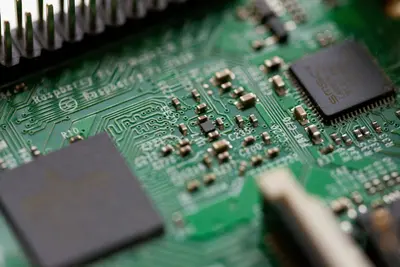💾 Disk Space Management and Cleanup Strategies in AlmaLinux: Simple Guide
Is your AlmaLinux system running out of space? Don’t worry! 😊 We’ll learn how to check disk usage, find what’s eating up your storage, and clean things up safely. It’s easier than you think! Let’s make your system breathe again! 🚀
🤔 Why is Disk Space Management Important?
Managing disk space keeps your computer happy and healthy! Here’s why it matters:
- 💨 Better Performance - More free space means faster system
- 🛡️ Prevents Crashes - Full disks can cause system failures
- 📦 Install New Software - Need space for updates and programs
- 📊 Smooth Operations - Services need room to work properly
- 🔄 Backup Space - Room for important file backups
- 📝 Log Files - System needs space to write logs
🎯 What You Need
Before we start cleaning, make sure you have:
- ✅ AlmaLinux system (any version)
- ✅ Terminal access
- ✅ Basic command line knowledge
- ✅ Admin (sudo) access for some commands
- ✅ 5-10 minutes to follow along
📝 Step 1: Check Your Disk Space
Let’s see how much space you have left! 🔍
Check All Disks
# Show disk usage in human-readable format
df -hExample output:
Filesystem Size Used Avail Use% Mounted on
/dev/sda1 20G 12G 7.0G 64% /
/dev/sda2 100G 45G 50G 48% /home
tmpfs 2.0G 0 2.0G 0% /dev/shmWhat this shows: 📖
Size= Total disk sizeUsed= Space already usedAvail= Free space availableUse%= Percentage used (watch this!)Mounted on= Where disk is connected
Check Specific Directory
# Check home directory size
du -sh /home
# Check with more detail
du -h /home --max-depth=1🔧 Step 2: Find What’s Using Space
Time to find the space hogs! 🐷
Find Large Files
# Find files larger than 100MB
find / -type f -size +100M 2>/dev/null
# Find top 10 largest files
find / -type f -exec du -h {} + 2>/dev/null | sort -rh | head -10Check Directory Sizes
# See sizes of directories in current location
du -h --max-depth=1 | sort -rh
# Check /var directory (common space user)
sudo du -h /var --max-depth=1 | sort -rhPro tip: 💡 The /var directory often fills up with logs and cache!
🌟 Step 3: Clean Package Cache
Package managers save downloaded files. Let’s clean them! 🧹
Clean DNF Cache
# Check cache size first
sudo du -sh /var/cache/dnf
# Clean all cached packages
sudo dnf clean all
# Remove old packages only
sudo dnf clean packagesRemove Old Kernels
# List installed kernels
rpm -qa kernel
# Keep only 2 newest kernels
sudo dnf remove --oldinstallonly --setopt installonly_limit=2 kernelWhat happens: 🔄
- Old package files are deleted
- Downloaded metadata is cleared
- Old kernels are removed
- You free up lots of space!
✅ Step 4: Clean Log Files
Logs can grow huge! Let’s manage them properly. 📚
Check Log Sizes
# See log directory size
sudo du -sh /var/log
# Find large log files
sudo find /var/log -type f -size +100MClean Old Logs
# Clear systemd journal logs older than 7 days
sudo journalctl --vacuum-time=7d
# Or keep only 500MB of logs
sudo journalctl --vacuum-size=500M
# Clear specific log file safely
sudo truncate -s 0 /var/log/messagesSetup Automatic Cleanup
# Configure journal size limit
sudo nano /etc/systemd/journald.conf
# Add these lines:
SystemMaxUse=500M
SystemMaxFileSize=100M🎮 Quick Examples
Example 1: Quick Cleanup Script 🚀
#!/bin/bash
# Save as cleanup.sh
echo "🧹 Starting cleanup..."
# Clean package cache
sudo dnf clean all
# Clean journal logs
sudo journalctl --vacuum-time=7d
# Empty trash
rm -rf ~/.local/share/Trash/*
echo "✅ Cleanup complete!"
# Check free space
df -h /Example 2: Find and Delete Old Files 📅
# Find files not accessed in 30 days
find ~/Downloads -atime +30 -type f
# Delete them (careful!)
find ~/Downloads -atime +30 -type f -delete
# Find and remove .tmp files
find /tmp -name "*.tmp" -mtime +7 -deleteExample 3: Emergency Space Recovery 🆘
# When disk is critically full
# 1. Clean package cache immediately
sudo dnf clean all
# 2. Clear all journal logs
sudo journalctl --vacuum-time=1d
# 3. Empty /tmp
sudo rm -rf /tmp/*
# 4. Check space recovered
df -h🚨 Fix Common Problems
Problem 1: “No space left on device” ❌
Symptoms:
- Can’t save files
- Can’t install updates
- System acting weird
Try this:
# Emergency cleanup
sudo dnf clean all
sudo journalctl --vacuum-time=1d
sudo rm -rf /var/tmp/*
# Find largest files
sudo du -ahx / | sort -rh | head -20Problem 2: Root partition full ❌
Try this:
# Check what's using root space
sudo du -hx --max-depth=1 /
# Common culprits
sudo du -sh /var/log
sudo du -sh /var/cache
sudo du -sh /tmpProblem 3: Can’t find what’s using space ❌
Check these hidden spots:
# Check for deleted but open files
sudo lsof | grep deleted
# Check docker if installed
docker system prune -a
# Check snap packages
du -sh /var/lib/snapd📋 Simple Commands Summary
| Task | Command |
|---|---|
| 👀 Check disk space | df -h |
| 📊 Check directory size | du -sh /path |
| 🔍 Find large files | find / -size +100M |
| 🧹 Clean package cache | sudo dnf clean all |
| 📝 Clean logs | sudo journalctl --vacuum-time=7d |
| 🗑️ Empty trash | rm -rf ~/.local/share/Trash/* |
| 💾 Check top disk users | `du -h / —max-depth=1 |
💡 Tips for Success
- Regular Cleaning 🔄 - Clean monthly to prevent buildup
- Monitor Usage 📊 - Check disk space weekly
- Set Limits 📏 - Configure log rotation and limits
- Before Deleting ⚠️ - Always check what you’re removing
- Keep Backups 💾 - Save important files before cleanup
🏆 What You Learned
Great job! Now you can:
- ✅ Check disk space usage
- ✅ Find large files and directories
- ✅ Clean package cache safely
- ✅ Manage log files properly
- ✅ Create cleanup scripts
- ✅ Recover from full disk situations
🎯 Why This Matters
Now your AlmaLinux system:
- 🚀 Runs faster with more free space
- 🛡️ Won’t crash from full disks
- 📦 Has room for new software
- 🔄 Updates smoothly
- 📊 Operates more efficiently
Remember: A clean system is a happy system! Regular maintenance prevents big problems! ⭐
Keep your disk clean and your AlmaLinux will thank you! Happy cleaning! 🧹✨




